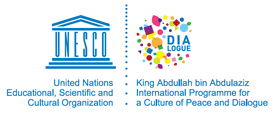DURATION: 2 hours
KEY TOPICS
- Evolution of the concept and practice of ‘free speech’ and ‘free press’
- Purpose of journalism in society and its role in the architecture of democracy (e.g. freedom, civic responsibility, transparency and accountability)
- Role and responsibilities of journalists in the 21st century in the national and global arena (e.g. mirror, gatekeeper, watchdog, enabler, facilitator)
- Public-interest journalism, editorial independence vis à vis ownership influence
- Role of information ethics
LEARNING OBJECTIVES
After completing this unit, teachers will be able to:
- trace the evolution of the concept and practice of ‘free speech’ and ‘free press’
- delineate the purpose of journalism and its role in strengthening or pursuing democracy and good governance, and
- evaluate the evolving role and responsibilities of journalists and information professionals, both in the national and global arena, and in the context of public interest
PEDAGOGICAL APPROACHES and ACTIVITIES
Civilization has produced one idea more powerful than the other – the notion that people can govern themselves. And it has created a largely unarticulated theory of information to sustain that idea, called journalism. The two rise and fall together.” — Bill Kovach and Tom Rosenstiel, The Elements of Journalism
Freedom of expression – sometimes known as free speech – has long been regarded as a fundamental right, essential to the realization of our full human potential, a foundation of other rights and freedoms and underpinning social and economic development. But freedom of expression needs public platforms that permit the exchange of information and ideas to be effective, hence the important role of the media in providing those platforms. In order to fulfil this function however, the media need to be independent of state or government control. This freedom from regulation in turn places an obligation upon journalists to behave ethically, hence the development of professional codes that deal with journalistic standards.
In considering these issues, the training facilitator may choose from the following:

